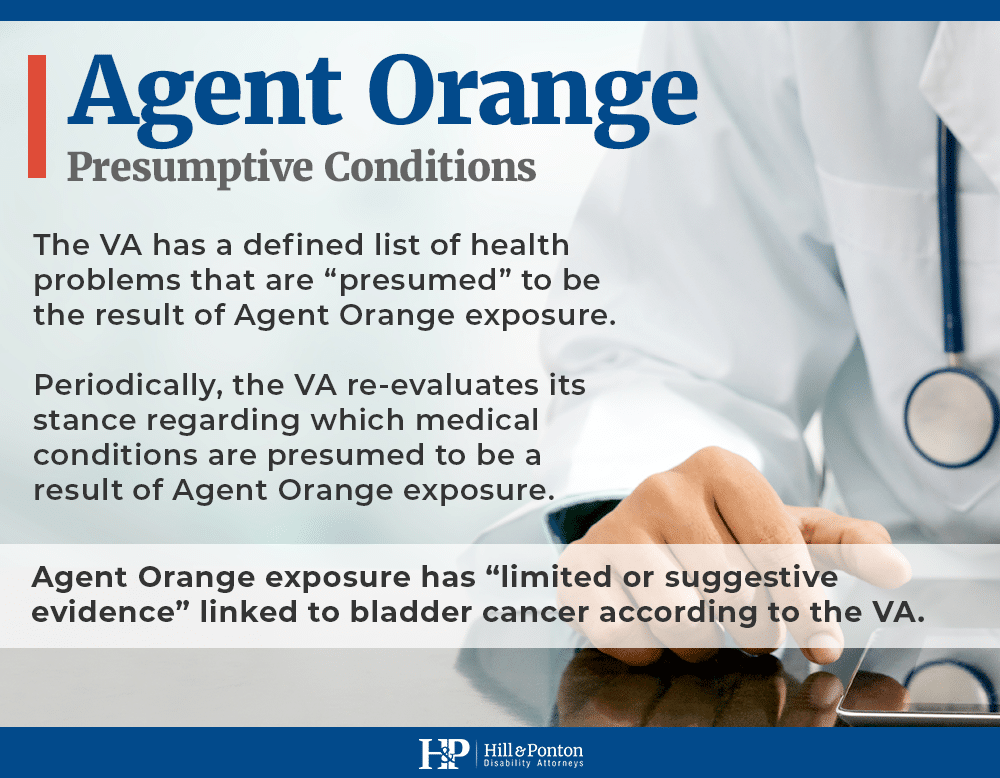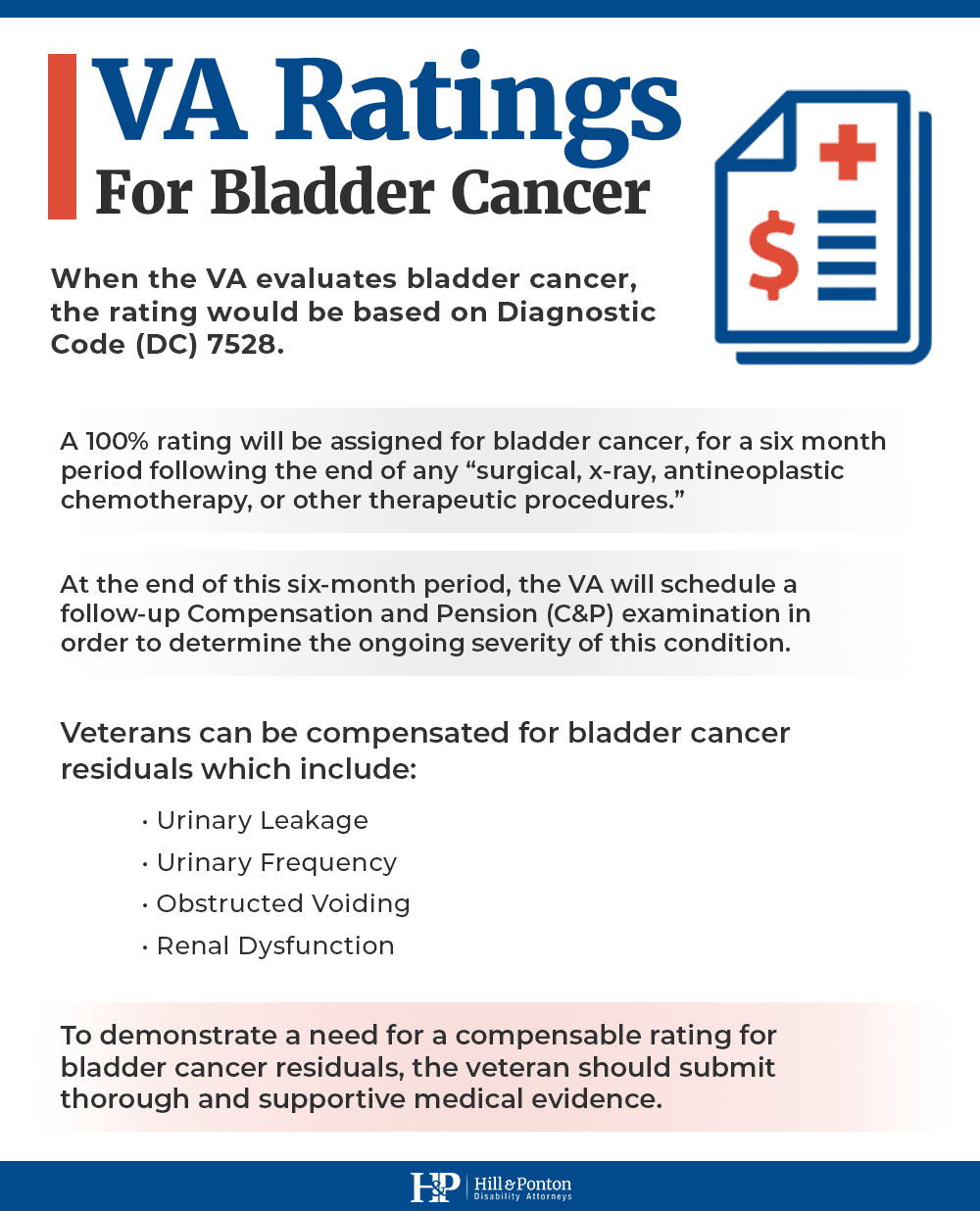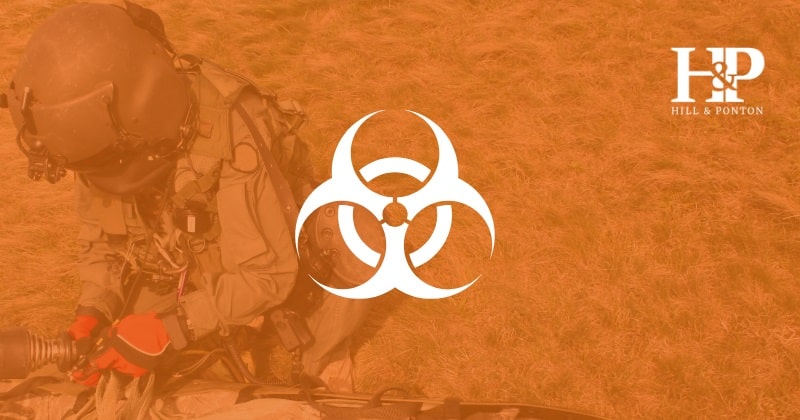Currently, if a U.S. military veteran can prove that they were exposed to Agent Orange during military service, they may be eligible for disability compensation. However, the VA has a defined list of health problems which are “presumed” to be the result of that exposure. The list of presumptive diseases, or presumptive conditions, includes conditions like prostate cancer, high blood pressure, peripheral neuropathy, bladder cancer and non-Hodgkin’s lymphoma. Vietnam-era veterans, and Blue Water Navy veterans in particular, may have been exposed to Agent Orange during active duty. In total, it is estimated that millions of Americans were exposed to the toxic chemical during the Vietnam war.
Is Bladder Cancer Presumptive to Agent Orange Exposure?
The Department of Veterans Affairs has decided to add bladder cancer to the list of presumed diseases related to Agent Orange toxic exposure. This chemical is an herbicide and defoliant that the National Academies of Sciences has evaluated for its connection to a variety of medical conditions, now set to include bladder cancer.
Periodically, the VA re-evaluates its stance regarding which medical conditions are presumed to be a result of Agent Orange exposure to update this list of diseases. The most recent change to the VA’s position regarding Agent Orange presumptive illnesses before the most recent regarding bladder cancer was in 2010, when the VA added ischemic heart disease, Parkinson’s disease, and chronic B-cell leukemia to the list.
The addition of these three conditions to the presumptive list, resulted in newfound compensation eligibility for thousands of Agent Orange exposed Veterans and their survivors. This is exactly what is going to happen with the adding of bladder cancer.

The long fight to link Agent Orange and Bladder Cancer
In a report issued in March 2016 by the Institute of Medicine, an IOM committee charged with reviewing the health effects of Agent Orange on Vietnam Veterans, stated that there is “limited or suggestive evidence” to link bladder cancer to this type of herbicide exposure. This statement and other evidence has now led to bladder cancer being added to the VA’s list of benefits relating to veterans and Agent Orange.
Secretary Robert Wilkie was asked about the presumptive conditions linked to agent orange while testifying before the Senate Veterans’ Affairs Committee in 2019. And Dr. Richard Stone, who is in charge of the Veterans Health Administration, mentioned that the VA would soon be making a decision on the status of such conditions. These conversations recently put the Agent Orange conversation on the map, marking a potential victory for Vietnam veterans and disability advocates.
This could mark a major shift in their position. Previously, the IOM denied that there was a connection between bladder cancer and Agent Orange. Due to the IOM’s position, most claims for bladder cancer were denied.
While this change in policy marks a significant step forward for Vietnam veterans, the fight for adequate compensation still continues. Assuming that bladder cancer will be added to the Agent Orange presumptive list, the VA will now need to rate the disease. If a veteran is experiencing bladder cancer at a certain rating, they may be eligible for disability benefits.
How VA rates Bladder Cancer disability
When the VA evaluates bladder cancer, the rating is based on Diagnostic Code (DC) 7528, “malignant neoplasms of the genitourinary system.” Pursuant to DC 7528, a 100% rating will be assigned for bladder cancer, for a six month period following the end of any “surgical, x-ray, antineoplastic chemotherapy, or other therapeutic procedures.” Then, at the end of this six-month period, the VA will schedule a follow-up Compensation and Pension (C&P) examination in order to determine the ongoing severity of this condition.
In other words, as long as the bladder cancer is still active, or, if the veteran is still undergoing treatment for this condition, then the 100% rating will continue. However, the VA will reduce the rating below 100% six months after treatments have ended and the cancer is no longer active. At that point, the VA will rate the bladder cancer based on the remaining residuals, if any.

What are Residuals of Bladder Cancer for VA benefits?
- Requirement for another surgery
- Ongoing pain
- Voiding dysfunction
- Erectile dysfunction
- And more.
When the VA evaluates residuals, they will consider whether there is any “voiding dysfunction” or “renal dysfunction.” These health conditions may be present following bladder cancer. For voiding dysfunction, the symptoms that count are urinary leakage, urinary frequency, and obstructed voiding. For renal dysfunction, the VA health care providers will run lab work and evaluate whether there is a decrease in kidney function.
In our experience, the most common residual from bladder cancer tends to be voiding dysfunction. Voiding dysfunction means that there is urinary leakage or incontinence, which may require the use of an appliance or absorbent materials, such as adult diapers or pads. There may also be obstruction in urination, where too much urine is retained, which may result in frequent urinary tract infections, the need for more surgery, or the use of a catheter. There may also be abnormal urinary frequency, which causes the veteran to have to urinate several times during the day and/or several times per night.
In addition to voiding dysfunction, some veterans may also develop erectile dysfunction. If erectile dysfunction develops secondary to the bladder cancer, then the veteran would also be entitled to special monthly compensation for loss of use of the genital organ.
Helpful evidence to prove bladder cancer issues and residuals for VA disability claims
In order to demonstrate a need for a compensable rating for bladder cancer residuals, the veteran should submit thorough and supportive medical evidence. This evidence can prove that, even though the cancer may not technically still be “active,” there are still residuals that do deserve compensation.
For example, letters from the veteran’s treating doctor and lay statements from the veteran and family members, would help to establish the severity of the symptoms. Basically, any form of supportive evidence of continued residuals would greatly support the veteran’s claim that ongoing compensation for the bladder cancer residuals is warranted.
Agent Orange’s Devastating and Lasting Effects on the body
As discussed before, the VA has conceded over a dozen medical conditions as being presumed to Agent Orange exposure. These can include devastating diseases such as Diabetes Mellitus Type 2, various forms of cancers, Ischemic Heart Disease, Parkinson’s Disease, and much more. Meaning all a veteran would have to prove is that they have the medical condition and that they were in an exposure area such as the Vietnam land mass, certain Navy ships, and more. For a full breakdown of the linked conditions, check out our Agent Orange body symptoms and diseases page here!




